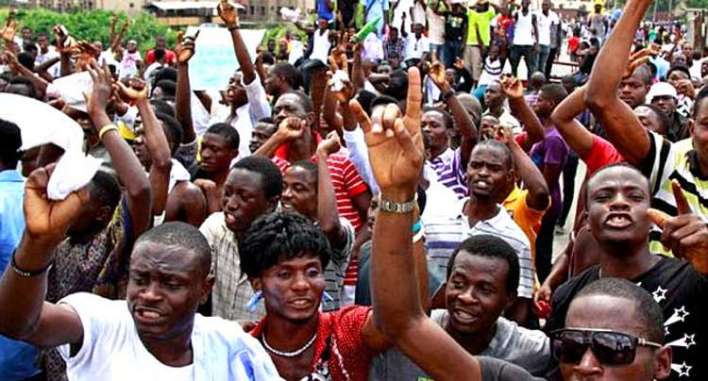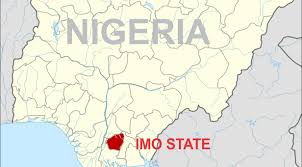Usually, Christmas is a week-long activity in a cluster of five clans called Mbaise, located in Imo State, the heartland of the eastern Nigeria. Mbaise comprises Agbaja (i.e. Enyiogugu, Nguru, and Okwuato), Ahiara, Ekwerazu, Ezinihitte and Oke Ovoro.
It was later split into three local government Areas of Aboh-Mbaise, Ahiazu-Mbaise and Ezinihitte-Mbaise. It should have been five or more.It is difficult to trace the exact origin of this Christmas practice that raised the annual festival from being a mere two-day affair – Dec. 25 and Jan 1 – to a week-long stretch of merriment and fun in this area.
We may, however, postulate that it began from the love for extended family members and friends ingrained in the people of Mbaise.
As a result of this, they saw an opportunity to demonstrate this love through visits to in-laws and friends in adjoining villages during their market days within the last week of the year, a period when many of their people living outside are attracted home for the festivities.
The love festival begins on Christmas Day and climaxes on the New Year Day which makes it a traditional week of eight market days.
In these eight days, all the villages celebrate and entertain visitors on their market days, be it eke, orie, afor or nkwo. Mark you, there is the “big” and the “small” of each of the markets and they alternate sessions within these eight-week days.
In other words, if eke ukwu (big eke) is in session today, eke nta (small eke) will be next, four days later, and so on. Although intricate, it is this calendar that governs the economic and commercial lives of the people all year round and, at the last week of the year, it dictates their social lives. Usually, it is called igba egwu, not in the sense of dancing but in the sense of celebration, merrymaking or festivities. Others say it is ikpu obia Christmas.
Of late, the younger generation came to see it as “erigwara”, which is pejorative and signifies vindictiveness, as if the visits and counter visits are done in a revengeful manner. The term actually dims the hospitality nature of the festivities. In the old days, relatives would be seen clutching kegs of palm wine and bowls of the local delicacy called ugba (specially prepared broad bean seeds) on their way to visit other relatives during these turn-by-turn festivities.
Today’s people visit empty handed.In the old days as well, masquerades of different sizes entertained people in their homes and got rewarded in gifts of cash or food. Today, the masquerades have learnt to move to major roads, disrupting traffic and asking for money, almost in a disgusting way.
As the practice of give and take has disappeared from the mutual visits, the host is now left to foot the bill for all the food and drinks to be consumed. It does not matter anymore whether you know the visitor or not.Again, we might ask why this pattern has remained exclusive to Mbaise and why the fellow-feeling has persisted among the people of the clans which, historically, did not originate from one family, as is observed in other clusters.
Perhaps, the awareness that they were the most oppressed people of old – the very reason they asked for an Mbaise Division to be created from Owerri Division in the colonial days – governed their crave for kinship. My friend and age mate, Simon Iwueze (we call him Danqua), and I fell into deep discussions this January on how we survived the onslaught of visitors that besieged our homes on our village’s market day which fell on New Year Day.
He told me the tale of a cock which he had condemned to death as meat on that day. Our cock was condemned, not because of its flirtation among the hens around but for the mere fact that the humans love its meat. The night before, he had gone to the chickens’ pen to fetch the mature and robust cock for slaughter the following morning. Behold, it was not there. There were doubts in Danqua’s mind as to its whereabouts. Could it have been stolen? Did it miss its way? Local chickens hardly do once they get familiar with the ground. Danqua was determined. He mounted a search party for the cock immediately. The search yielded dividends as the cock was located on top a shrub in the compound, dozing neck to neck with one of the hens in the harem. Stealthily, he climbed the shrub and approached the two birds.
Feeling that the cock was then within reach as he moved near it, he pounced on it, not knowing that what he got hold of was the tail. Krukrukrukrukru, kwakwakwakwakwa…! As agile as ever, the cock leapt into the air, abandoning some feathers in Danqua’s hands. It flew and flew, and flew like never before until it was way out of reach and safe from Danqua’s death sentence. Danqua stared disappointingly at the feathers in his hands.
They were not going to be the meat he would serve his guests the following day which happened to be the grand finale of the fanfare.He, there and then, looked for an alternative, and the lot fell on one of the hens, regardless that it was a mass producer of chicks. The innocent hen was slaughtered in place of the cock.
Amazingly, cocks do have premonitions as well. Could it be that the cock was part of a crossover night where the pastor gave it a revelation that the owner had planned such evil against it? Well, our lucky cock is still breathing in the land of the living. As for Danqua, exhausted by the preparations for the day, he settled for a bottle of spirit while waiting for the visitors. A large quantity of the drink found its way into Danqua and he dozed off, waking up hours after the visitors had thinned down. Like the cock, many of us humans, including this writer and this reader, should be thankful to God for letting us cross over.
We should, however, give a thought to what the year that we have crossed over to portends, a doomed 2022 or a prospective one? While God continues to work on Nigeria, we should feel the obligation to yield to Him so he could use us as the chisel in His hands. Like the cock as well, we need to fly away from the clutches of repression, clannishness, impunity, short-sightedness, spreading of falsehood the way the situation favours us, among others.
The impending fuel price hike, the prevarications over the electoral amendment law, the persistent security threats in both north and south, the steep rise in commodities’ prices, the dismal figures of our economic indices such as debt profile, the exchange rate to the naira, or the inflationary rate, all come together to make the average Nigerian cringe at the thought of 2022.Clearly, 2022 is scary for Nigerians. For that reason, all knees must go down in prayers to the almighty God to intervene and save the nation from doom.









